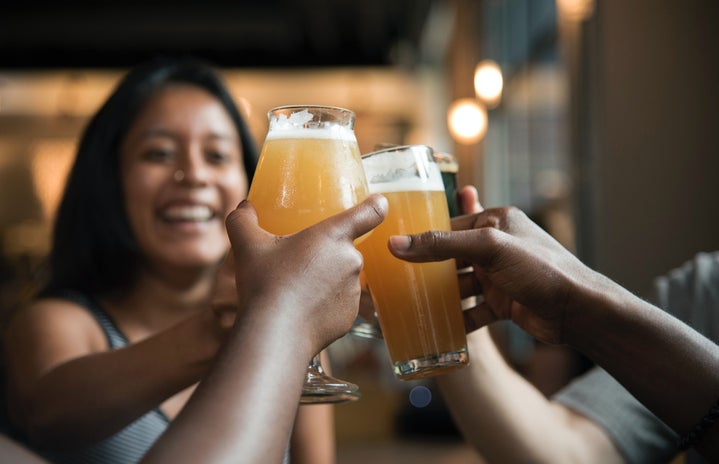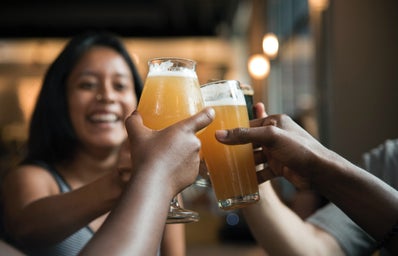Drinking has wormed its way into the heart of university; the majority of students move into their accommodation with pre-conceived expectations of what adulthood and independence is like.
As students, we are under the illusion that drinking is a rite of passage into adulthood for many reasons, with films such as ‘22 Jump Street’ and ‘Neighbors’ that portray the stereotypical ‘college’ lifestyle, and stories of one’s older siblings and their time as students acting as another.
It has become so heavily engrained in society that in order to have the best university experience, one needs to drink – does this mean that drinking equates to fun?
The answer to this question is no! However, this is an understandable response and the subsequent anxiety that circulates around this is just one of a few reasons why drinking has become standard practice. Listed below are more reasons that are taken from both personal experience as well as stories and suggestions from friends that attempts to the solve the dilemma of why drinking has become so normalised.
- Amidst the busy university schedule that involves writing multiple essays that have similar deadlines to one another, as well as constantly preparing for seminars the for week after or else fall behind, going to the pub for a pint or two or going on a night out (that involves heavy drinking) doesn’t seem like a bad idea. However, if we analyse this further, we are hit with the sad reality and perhaps truth that is the idea of alcohol being a reward for hard work – in this, the substance has manipulated itself into a form of self-care.
- When meeting new people, alcohol tends to relieve any social anxiety and can often be a confidence booster. Now acting as a social lubricant, whether it be for house parties or university socials, alcohol removes the fear of awkward encounters and takes away the stress of encountering small talk with people.
- If you don’t drink, then sometimes the implications of that person being ‘boring’ arise – this was the first reaction people had when I told them I was doing Dry January. As a result, I ended up questioning my own personality and believed for a short while that, without alcohol, I was an entirely dull being, with no remarkable traits that made me stand out from everyone else. I was tempted many times to break my sobriety, as buying a Diet Coke during nights out with my friends for the extortionate price of £4 felt entirely criminal.
Looking back, I now realise that my past-self succumbed to getting many drinks at pubs for the sake of it, rather than face and endure the not-so-painful idea of being sober. In a month-long period of heavy self-reflection, I became aware that I was heavily reliant on alcohol to get me through any social setting, even if I was with my closest friends. Although I was sober for a month, this doesn’t mean that I will be giving up alcohol entirely and the purpose of this article isn’t to shame you either! However, one thing that you might take away is the certainty that there is more to your social life than drinking. The societal expectations and peer pressure to have a drink, or else suffer the negative connotations that come from being sober, should be quashed. Ultimately, it is entirely your choice to drink, but before you do, consider with an acute awareness the intention behind it and perhaps you will find that in certain, if not all situations, drinking really isn’t necessary.



